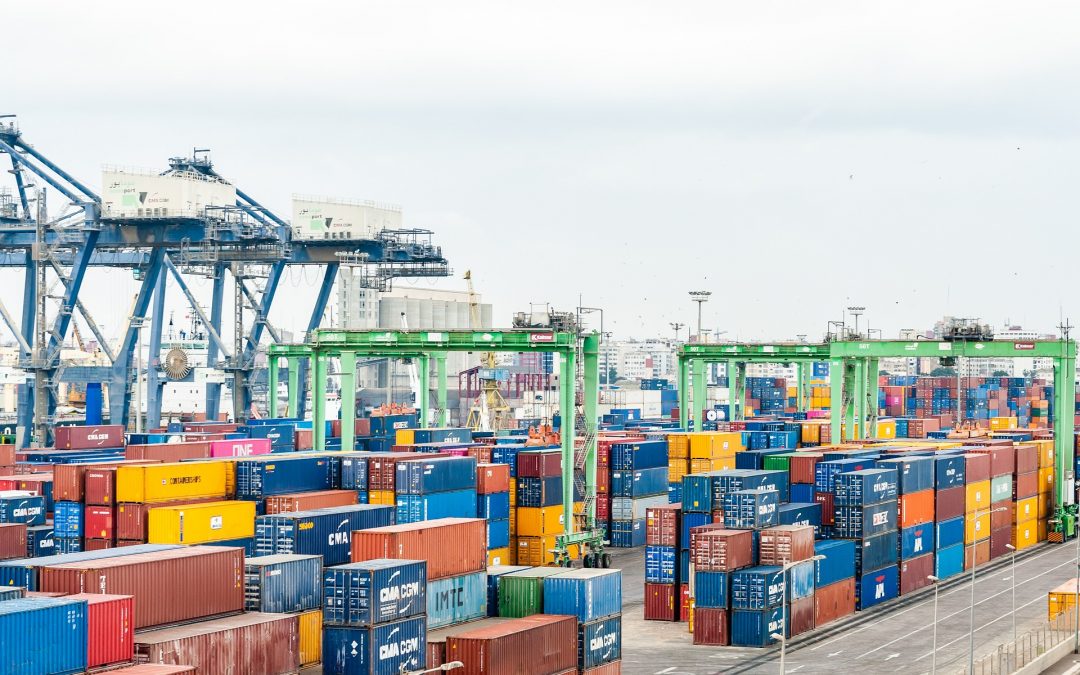Container Corporation of India (CONCOR) is the leading container logistics player with about 65% of market share in containerized movement in India. CONCOR has been making news with Government of India’s(GOI’s) reinvigorated efforts to divest its stake in the company. The Expression of Interest (EOI) for 30.8 % stake sale by CONCOR is expected to be released in next few days. This will take down GOI’s holdings to 24% in the company.
Divestment of CONCOR is expected to change the direction in more than one way. The disinvestment process is not only likely to reap rich dividends for the government through cash generation but also symbolizes the change in stance by Indian Railways (IR).
CONCOR has always benefited through its proximity with IR in the form of privileged access to land for its strategically located terminals. The terminals have provided competitive advantages with their locations and the ecosystem these terminals have built over the years during CONCOR’s monopoly and even after that. The Inland Container Depot at Tughlakabad(TKD) in Delhi is a case in point. Despite all the restriction on the movement of vehicles feeding the terminal, TKD is still one of the most preferred ICD for traffic moving in and out of NCR and other regions in the Northern belt of India.
To be fair on CONCOR, its legacy as quasi government organization as Public Sector Enterprise has also made it slow in a highly dynamic market. The result has been unrealized potential despite its unrivalled advantages.
Removal of shackles along with the excellent location advantage makes CONCOR a very exciting target for global and large Indian companies.
CONCOR is not only attractive for its location but also helped by macro economic tailwinds favoring Indian Economy. Containerized movement is expected to grow at a faster clip than say bulk or general cargo which is evident from the numbers. The growth is linked to consumer and industrial demand which is increasing at a fast clip. It is also associated with new ways to standardize even hitherto so-called bulk commodities. An example is cement and liquid bulk cargo where significant movements have happened in last decades or so. Changing economics for different commodities such as rice is making it attractive to carry them in containers. With the push on Production Linked Incentive (PLI) Scheme to a number of strategic industries the growth in container traffic is expected to reach new highs at least for a decade or so.
It all sounds euphoric. Right? But there are certain caveats which should be kept in mind by potential suitors. Despite the positive outlook and enthusiasm of players, the proposition of buying CONCOR is fraught with certain avoidable risks .
To begin with, the acquisition can be afflicted with winner’s curse and there is a high likelihood to pay a very high price, literally. At current valuations, 30% stake is worth around INR 15000 crores (just shy of USD 2 billion) . Given the size of investment and zero indebtedness of the company, I am pretty sure many Private Equity players will be a part of bidding process directly or indirectly. The opportunity for using leverage is high and can juice up equity returns.
Secondly, the terms and duration of lease of terminal land parcels should be deeply scrutinized. As a part of railways for all the practical purposes, CONCOR may have been getting favorable treatment by IR. The contracts between CONCOR and IR likely are not watertight as most the arrangements are informal between these related entities. Once the company goes into private hands, these contracts may become the bedrock relationship between the company & IR.\
In addition, the benefits of strategic locations may be short lived if the lease durations are for short periods. The effect will be more pronounced if the top 4-5 locations which contribute more than 2/3rd of volumes come under unfavorable contractual terms. It may be noted that new land lease policy of IR may allow these locations to be leased by other players in not-so-distant future.
Third major risk comes from CONCOR readiness to leverage its existing infra to take advantage of Dedicated Freight Corridors (DFC). Whether connectivity of these terminal locations to DFC is suitable in new paradigm needs to be evaluated closely. Any obstacle in integration with DFC may badly affect even the best locations in almost no time.
Fourth, there may arise corporate governance related risks since government will keep sizable stakes even after the disinvestment. These risks should be addressed with proper deliberation and documentation between the company & IR and the bidders must insist on necessary provisions before taking a call.
The above-mentioned risks are by no means an exhaustive set of risks. However, in my view they are the ones with highest potential to sour a good deal.
In conclusion, CONCOR can be a jewel in the crown for the potential suitors but the key is to think through the risk mitigation strategies at this very stage rather than regretting decisions later.
For any queries on CONCOR or logistics market in India please mail at

